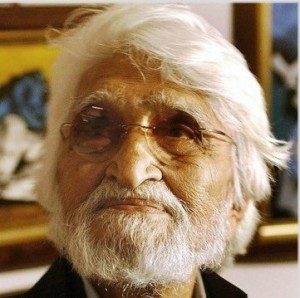Who decides what you see online?
 The government has convened an industry working group to examine how to block websites. Peter Bradwell considers the possible options
The government has convened an industry working group to examine how to block websites. Peter Bradwell considers the possible options
(more…)
 The government has convened an industry working group to examine how to block websites. Peter Bradwell considers the possible options
The government has convened an industry working group to examine how to block websites. Peter Bradwell considers the possible options
(more…)
The 11th annual Index on Censorship Freedom of Expression Awards, sponsored by SAGE, were presented tonight (24 March) at a ceremony in London hosted by Jonathan Dimbleby
Yesterday’s Defamation & Privacy industry conference neatly coincided with the publication of the government’s draft defamation bill, in time for the final panel to dissect and critique it after lunch.
Tracey Brown, director, Sense About Science, and part of the Libel Reform campaign, welcomed the bill’s content while expressing caution over certain elements, for example Section Two proposals for the “Responsible publication on matter of public interest”.
“My first reaction is that we need to look again under [section] Two, items A-H, which I think still represent hurdles which the court may use as a checklist before making a defence available. I am quite concerned about that — [it] may really limit the availability of the defence for citizen journalists.”
“I’m really disappointed that corporate claimants haven’t been addressed,” she added. “The bill is yet to address ISPs and the internet in a forceful way.”
Sarah Jones, head of litigation, BBC said she was pleased to see jury trials going because “a lot of preliminary issues you would like to have answers to have to be left over to trial, and for the defendant that could be the difference between being prepared to defend and not.”
On the back of that, she said, there was a new procedure for early determination of questions, which would have otherwise been left to a jury. “On the downside, of course, that may mean there are a lot of satellite applications knocking around, that perhaps otherwise we wouldn’t have seen, I don’t know.”
Pia Sarma, head of legal at the Times, said she was glad to see jury trial issue tackled. Fair comment, as a more “subjective” defence was her main concern, leaving questions still to be answered, such as how a statement of opinion will be established. She wasn’t convinced it mattered whether it was called honest opinion or honest comment.
For Justin Walford, legal manager at the Sun, juries had been a “luxury in the past” which vastly added to costs, so he was pleased by this reduction in costs, but asked for clarification about what conditions would require a jury and at what stage it would be decided. He questioned how the “new procedure for defamation cases” would work. Would it be possible to arbitrate some matters before proceedings were issued, or rather than having to go to a High Court hearing? Issues could be decided early without “wasting huge amounts of time pleading justification pleas to different meanings”.
John Kampfner, CEO, Index on Censorship, while disappointed in the omission of corporations and ISPs, said he saw it as a “good bill” and a good starting point. Section seven of the draft bill, addressing Jurisdiction, is very important, and would deter cases of libel tourism, he said. “The courts must in the future be satisfied that England and Wales are the most appropriate place, not just equivalent, but the most.”
In two fell swoops, by correcting the body of law and dealing with jurisdiction, “this most important area, and one of the greatest symbolism, hopefully will have been tackled.”
The Government’s draft defamation bill, published yesterday:
Awards judge Hans-Ulrich Obrist introduces the Intelligent Life Arts Award
“In the field of the arts, liberty of expression is very often taken for granted. However, one should not forget that some artists struggle to express themselves in a lot of places around the world.
“Through different mediums, the three nominees have battled against censorship in remarkable ways. The cineaste Jafar Panahi’s unfailing support for Iran’s 2009 Green Revolution resulted in his ban from filming for 20 years. Gurpreet Kaur Bhatti’s great play Behzti satirised censorship, depicting with particular insight the relationship between creativity and controversy. Lastly, MF Husain’s immense courage and brave rejection of the prevalent academicism has led to self-exile in the UK and UAE as a result of sustained campaigns of legal harassment and mob violence.
“At the hour of globalisation, one should remember Edouard Glissant’s invigorating concept of mondialité: poetics and politics not apprehended as two distinct categories, but poetry clearly opening out into politics.”
Gurpreet Kaur Bhatti
Gurpreet Kaur Bhatti is a British Sikh playwright and television and radio scriptwriter. Her 2004 award-winning play Behzti (“Dishonour”) met with controversy after its depiction of sexual abuse in a Sikh temple (Gurdwara) caused offence to some members of the local Sikh community. Protests outside the Birmingham Repertory Theatre, where the play was to be performed, turned violent and the theatre cancelled the run. Following death threats, Bhatti went into hiding and was given police protection.
Behud (“Beyond belief”) a sharp satire of censorship in modern-day Britain, is Bhatti’s artistic response to the Behzti affair; it was staged in 2010, at the Belgrade Theatre, Coventry and Soho Theatre, London. The play strikes at the tension between freedom of expression and faith groups’ assertion of the right not to be offended. It is testimony to Bhatti’s commitment to confront hypocrisy and fight for her right to freedom of expression in the face of hostility and potential risk to her personal safety.
Jafar Panahi
 Iranian director Jafar Panahi has received international recognition for his films, which include The Circle, White Balloon — winner of a Camera d’Or at Cannes in 1995 — and the award-winning Offside, the story of a young female football fan.
Iranian director Jafar Panahi has received international recognition for his films, which include The Circle, White Balloon — winner of a Camera d’Or at Cannes in 1995 — and the award-winning Offside, the story of a young female football fan.
In July 2009, Panahi was detained briefly after he joined mourners at the grave of Neda Soltan, the young protester who became an icon of the country’s “Green Revolution” when she was shot dead. He was arrested again in March 2010 and taken from his home to Tehran’s Evin prison. The international film community rallied, with numerous petitions and letters sent to the Iranian authorities demanding his release. He was released on bail in May. Last December he was found guilty of colluding against the Islamic republic and sentenced to six years in prison. He has been banned from travelling for 20 years and from making films for the same period.
MF Husain
 Celebrated and critically-acclaimed Indian artist Maqbool Fida (MF) Husain has been battling against censorship in his native India and elsewhere for close to 20 years. Born in 1915, he is recognised as one of India’s greatest living artists. He has lived in exile since 2006.
Celebrated and critically-acclaimed Indian artist Maqbool Fida (MF) Husain has been battling against censorship in his native India and elsewhere for close to 20 years. Born in 1915, he is recognised as one of India’s greatest living artists. He has lived in exile since 2006.
Husain’s work has caused controversy in sections of the conservative Hindu community, who regard his depiction of Hindu gods and goddesses in the nude as blasphemous and offensive. Husain has received numerous threats and exhibitions of his work have come under attack on several occasions; in India, he has faced hundreds of legal actions relating to his work.
In January 2011, three of Husain’s artworks were removed from the Indian Art Summit in New Delhi following threats. Organisers said they could not guarantee the safety of the artwork or of those visiting the exhibition.